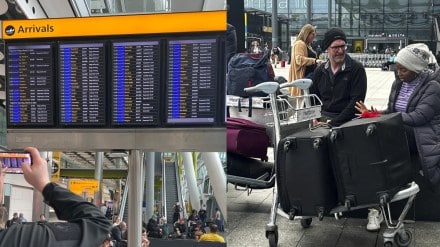A cyberattack on a service provider handling check-in and boarding systems has caused major disruptions at several leading European airports, including London’s Heathrow, Brussels and Berlin. The issue has led to long delays and flight cancellations, airport operators confirmed to news agency Reuters.
According to Brussels Airport, the cyberattack forced automated systems offline, leaving staff to handle check-in and boarding manually.
“This has a large impact on the flight schedule and will unfortunately cause delays and cancellations of flights,” the operator said in a statement on its website.
Service provider working to fix issue
Airport operators assured travelers that efforts were underway to resolve the problem.
“The service provider is actively working on the issue and trying to resolve the problem as quickly as possible,” Brussels Airport added.
Heathrow and Berlin airports warn travelers
London’s Heathrow Airport said the delays were due to “a technical issue” at a third-party supplier. Passengers flying on Saturday were advised to check with their airlines before heading to the airport.
Berlin Airport also cautioned travelers about longer waiting times.
“Due to a technical issue at a system provider operating across Europe, there are longer waiting times at check-in. We are working on a quick solution,” the airport said on its website.
Not all airports were hit by the cyberattack. A spokesperson confirmed that Frankfurt Airport’s operations were running normally, Reuters reported.
Previous cyberattacks
On December 26, 2024, Japan Airlines (JAL) was hit by a cyberattack which disrupted both its internal and external systems, the airline confirmed. The airline further admitted the breach but told AFP there were no immediate updates on whether flights would be delayed or cancelled.
On December 28, 2024, hackers attacked about ten official websites in Italy, including those of the Foreign Ministry and Milan’s two airports.
The websites were taken offline for a short time, according to the country’s cyber security agency. A pro-Russian hacker group called Noname057(16) claimed responsibility on Telegram, saying Italy’s “Russophobes get a well-deserved cyber response.”
